The Decent Living Campaign is an initiative aimed at improving the lives of vulnerable communities in Uganda by seeking the support of corporate partnerships and the goodwill of well-wishers. The campaign is in partnership with the Kingdom of Buganda and piloting in 7 out of 18 counties. To date over 100million has been raised enabling 5 families to have improved living and sanitary conditions.
Vulnerable families to benefit include
- Orphans and Vulnerable children’s or families taking care of OVC
- The elderly with at least 4 dependents
- The disaster affected persons
- The terminally ill persons that can no longer be able to work with at least 4 dependents
- Children with special needs and the widows/widowers with at least 4 dependent
For one to be eligible for this program each beneficiary household must
- Live in poverty of less than 1 dollar a day
- live in poor housing conditions such as leaking roof, grass-thatched roofs, dirt floor,
- Poor/lack of sanitary facilities or live in an overcrowded room
- identified by your community and local leaders to be in dire need of shelter
- have secure tenure of the land on which to build and also proof of ownership
Goal: Improving living and sanitary conditions of 500 households with improved shelter, access to clean and safe water, hygiene and sanitation by 2022
Strategy: by creating opportunities for multi-stakeholder towards increasing access to social housing.
´Focus of intervention: Construction/ House; water, sanitation, hygiene, youth empowerment livelihoods
We are grateful to all the partners who have supported this campaign.
Background to the housing sector
Decent and Affordable Housing is the key to other vital rights-based services such as access to clean and safe water, hygiene and sanitation and hygiene, health, food, and security; livelihoods, Environmental sustainability, and gender equality. (Source: UN-Habitat Right to Adequate housing Section).The current housing deficit is estimated at 2.1million housing units and is expected to reach 3million by 2030 with the current population growth rate of 3.2% per annum, roughly means that after every 20 years, our population doubles thus putting pressure on the housing.
Housing is a socioeconomic development imperative. UN-Habitat states that Housing is true support for survival making a substantial and prolonged contribution to the socio-economic development of people and cities. While housing provision is important for improving livelihoods, standards of living, and welfare, it also accounts for a significant share of wealth and resources that can be an important source of economic growth, employment generation, and a major component of the economic development agenda. Research has shown that poor housing and living conditions put a strain on the access of other fundamental human rights like access to good health, water, and sanitation, a good environment among others.
Housing is the cornerstone of public health and the foundation for breaking the cycle of poverty & poor health. With the COVID 19 Pandemic, Housing has become the front line defense against the coronavirus. Currently, the global health initiative involving both the World Health Organization, United Nations, and other non-state actors is focused towards the promotion of proper and decent housing as a key human rights that all states must adhere to, to ensure the well-being of their citizens.
The right to good health has a reciprocal relationship to decent housing; a community cannot achieve good health unless it has access to good and decent housing. WHO states that 10m people die annually due to poor living and housing conditions and recommends that 75% of disease burden can be avoided if decent housing is realized.


Partner with us today to change lives and transform communities
